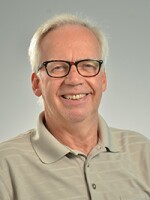In this age of greater access through social media and TV cameras, sports fans are given a peek of what happens behind the scenes more than ever before. But to get a peek inside the meeting rooms of the NCAA Division I men’s basketball committee is another story. Access before the 68-team bracket is unveiled on Selection Sunday is unlikely anytime soon.
Beauty marks and warts
It dates back to the 1980s and 90s when the committee met in Kansas City at what was then the Hyatt Hotel. The top level of the hotel, the 40th floor, was under tight security as it is this week at the downtown Conrad hotel in Indianapolis. Until the tournament bracket is revealed, experts and fans alike are left guessing based on the committee’s criteria. Even teams on the bubble are left wondering.
In 1998, C.M. Newton was the committee chairman. He commented then on the teams in contention to make the field.
“Each of them will have beauty marks and warts and what you try to do is point out both,” Newton said. “I guess the team with the most beauty marks is the one that gets in.”
Newton broke the hearts of University of Missouri fans that year when the Tigers were left out.
“I think the thing that probably worked against Missouri, one of their warts, was the fact that they didn’t win any games away from home,” said Newton.
The same thing might keep Missouri out of the NCAA tournament this year. But, again, that’s only a calculated guess.
Attempts at transparency
Kirk Wessler, president of the U.S. Basketball Writers Association, says the idea of an appointed pool reporter inside the meetings has been discussed.
“I have talked to some people on the committee who, while guarded, they say, ‘Well, if we can find a way, they say, yeah, they’d be open to speaking about it,’” says Wessler. “That’s our challenge as reporters and basketball writers to keep the doors open, push the door a little wider and keep working.”
As a statistics coordinator for the NCAA, Gary Johnson sits in on the committee meetings. He believes public access to the meetings will stifle opinions.
“As long as it all stays in that room, they can be as honest as say, ‘Yeah, they had a good season, but they’re weak here and they’re not very good at this,’” says Johnson.
The NCAA has tried to become more transparent through other methods.
Mock selections are held for the media to help them better understand the process. Also, the formula for the Ratings Percentage Index (RPI), which determines a team’s strength of schedule, is now publicly disclosed.
The lower the RPI number, the better.
Some teams still feel snubbed
Still, even with a solid RPI number, teams are overlooked for one of the 36 at-large berths to the tournament. It leaves coaches, such as Southern Illinois coach Barry Hinson, scratching their heads. Hinson was never able to crack the NCAA tourney bracket during his previous stint as a head coach at Missouri State University.
“You’re talking to a guy that’s had three of the lowest RPIs of the ten lowest RPIs to never get into the NCAA tournament,” says Hinson. “You’re talking to a guy who had an RPI of 21, the lowest of all time.”
That was in 2006. Hinson paid the price two years later despite winning almost60 percent of his games in nine seasons with Missouri State.
“Got my ass fired. Point blank.” says Hinson.
More than just the prestige of making the NCAA tournament is at stake. It’s certain other coaches will lose their jobs if they don’t get there. That part is understood.
What remains unclear is the behind-the-scenes debate that will take place this week while teams await their fate. Others with one or two games left will try to enhance their chances with another beauty mark.



